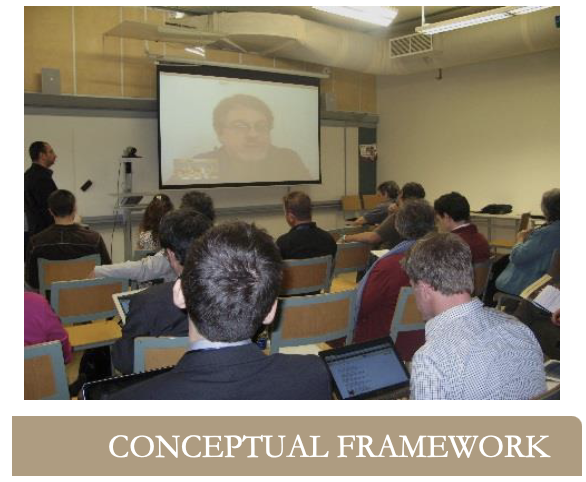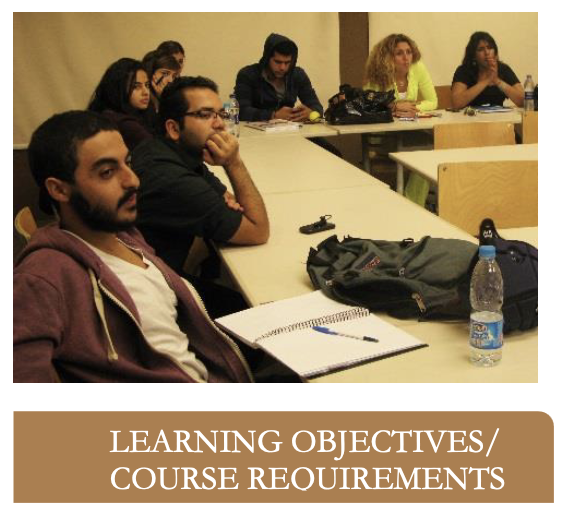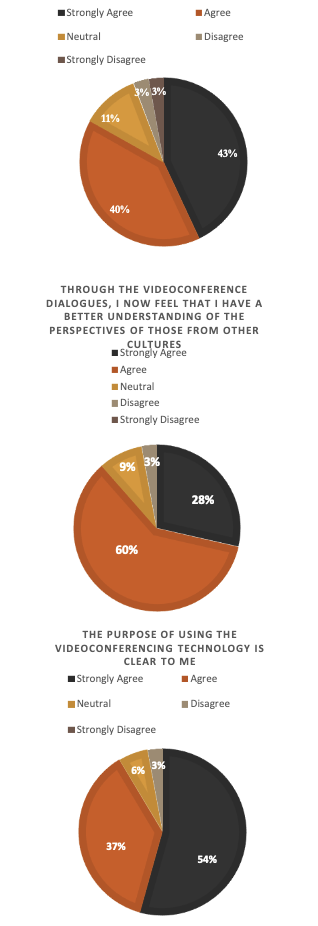
In the wake of the events of September 11, 2001, the Core Curriculum sponsored a
special project designed to use Internet videoconference technology and other
forms of communication to promote dialogues between AUC students and their
counterparts from a host of backgrounds and disciplines from all over the world. An
informally dubbed ‘Dialogue Project’ evolved in a number of different directions, the most significant being the establishment of a three-credit-hour course focused upon a weekly videoconference. The Dialogue
Project also sponsored a special topics course titled ‘Arab and American Identities in Tension’ which brought students from AUC, the American University of Beirut and the University of Washington together in a small village in Cyprus for 2-3 weeks each summer to live together and discuss issues concerning the relationship between the United States and the Arab World. In the wake of the Arab Spring the Project also introduced two new academic courses that are mainly based on partnering with universities from the Arab World and the Global South, ‘The Arab Spring in Arab Eyes’ and ‘South-South Dialogue’.

How do we define ‘Dialogue’ ?
- Ongoing process of ‘responsive understanding’; involves both the heart and the mind
- People participate in dialogue both as individuals and as group-members;
- Power, privilege, and culture are underlying themes
- Transition of dialoguers from the polite/angry mode to meaningful engagement in dialogue is possible with continuous reflection on one’s own thoughts and feelings;

Learning Outcomes
The dialogue course aims to bring together students from different cultures alongside counterparts from AUC in
order to explore a diverse set of issues pertaining to the social, economic and political contexts of a wide variety of countries in the Arab World, the Global South and the West. In doing so, it addresses these selected current and possible future issues from a regional as well as a global perspective. By the end of the course students should be able to utilize the videoconference technology in: a-conveying/reflecting upon their own opinions b-enhancing their knowledge about the similarities and differences between different cultures and c-improving their critical thinking skills.
Course Components
Attendance & Participation…………25%
Presentation…………………….15%
(Students assess their peers in
presentations according to guidelines set by class)
Reaction Papers…………..30%
Final Research Paper………30%

- 150 average number of AUC students who enroll in our dialogue courses annually
- 21 # of countries partnered with since 2001
- 36 # of universities
- 5 # of continents with established contacts

THE VIDEO CONFERENCE
DIALOGUES HAVE HELPED ME
IMPROVE MY CRITICAL
THINKING SKILLS

“Videoconferences with students from different countries – all with similar socioeconomic and political backgrounds – have really given me insight into my own country and how there are so many opportunities…we can use their past experiences to
push Egypt forward”. Shirwet Sadek, Student
Global South (Spring 2013)

